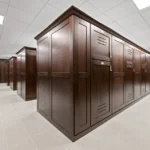While institutions are dominating investment in larger metros, private investors are quietly fueling sales activity in smaller tertiary markets where pricing is more attractive and yields are higher.
Smaller metros have always provided a strong foundation of transaction activity in the self-storage sector, and there continues to be a lot of sales velocity in these tertiary markets, says Joel Deis, regional manager of Marcus & Millichap’s Seattle office director of the firm’s National Self-Storage Group.
Those tertiary markets are very yield driven. Smaller cities don’t get the same high-levels of rent growth, but the further you get outside of a core market the bigger the cap rat, Deis says.
According to Marcus & Millichap’s 2019 Self Storage Investment Forecast, cap rate compression in primary and secondary markets has spurred interest in tertiary markets in recent years with yields that are often 150 to 200 basis points higher than primary metros.
Added to that, growth momentum is expected to favor smaller cities in the coming year. The report noted that while the early stages of the growth cycle favored primary and secondary markets, metrics began shifting to favor tertiary markets in 2017, and tertiary markets are expected to lead job growth in 2019.
Risk and reward

Jane Sauls, Commercial Realtor
There is a lot of buzz about the investor pool and whether they are willing to take on risk in tertiary markets.
“What we’re seeing is that they definitely are,” says Jane H. Sauls, a commercial realtor with Commercial Realty Services of West Georgia, an affiliate of the Argus Self Storage Sales Network.
Another factor fueling interest in smaller metros is limited for-sale product. Investors are being forced to look beyond top 30 metros, because there are fewer buying opportunities in those bigger cities, she adds.
Although cap rates vary widely depending on the quality and location of assets, it is typical to see cap rates in Georgia’s tertiary markets that are north of 8.5%, notes Sauls.
“It is safe to say that cap rates are at an all-time high, because of the limited supply in larger, primary markets,” she says.
Arguably, even smaller cities are struggling with limited for-sale inventory due to owners that are reluctant to sell. When fresh product does come to market, it tends to spark a lot of interest.
For example, there are only about 20 storage facilities across the entire state of Georgia that are being actively marketed, notes Sauls.
“There is just not a lot of inventory in any of the markets,” she says.
Sauls recently listed an 80,000-square foot, mainly non-climate controlled facility in Tifton, GA. about four hours south of Atlanta that attracted 50 inquiries.
A ton of investor appetite
Tertiary markets are benefiting from the pent-up buyer demand, agrees Deis.
“There is a ton of investor appetite for the storage industry right now. So, there are a lot of bids,” he says.
There is a surprisingly deep buyer pool for self-storage assets in tertiary markets that includes local and regional investment groups, buyers that are coming out of the apartment industry and other “new money” that is wanting to get involved in the storage industry.
Seasoned investors in particular have a better understanding of the demand drivers for storage. There are more technology and data resources available today to help investors identify pockets of opportunity that exist even in smaller cities, such as high levels of renter or student populations.
“The secret is out so to speak on the benefits of investing in self-storage. We’re seeing that the buyers are just outweighing sellers tremendously in the market,” says Sauls.







